#Barbadian Culture
Explore tagged Tumblr posts
Text

Rihanna
#rihanna#trench coat#short hair#blonde hair#blond hair#savage x fenty#fentybeauty#singer#barbadian#barbados#black celebs#black culture#black woman beauty#black women#black woman appreciation#black woman magic#black#august#summer#toya's tales#style#toyastales#toyas tales#fashion#clothing#fashion photography#celebrity fashion#fashion inspiration#fashion trends#celebs
26 notes
·
View notes
Text
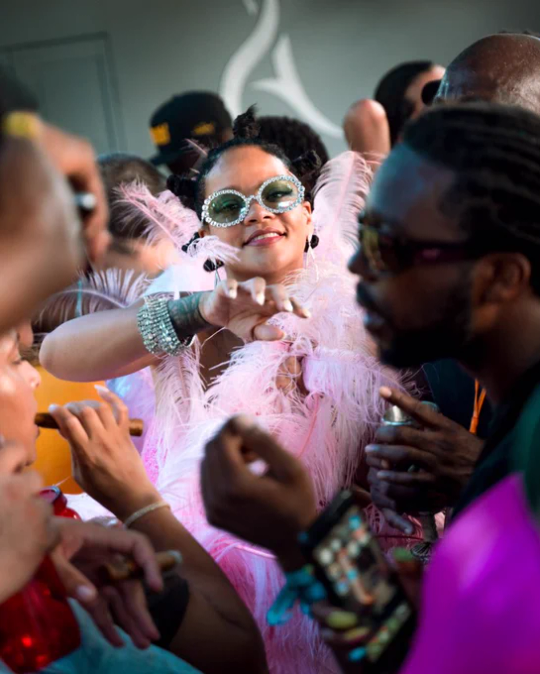
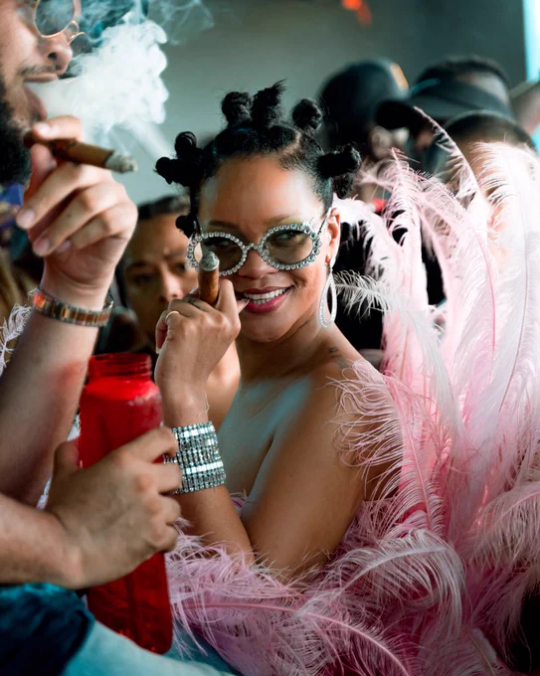

#krisshotit#bajan photographers#barbadian photographers#kadooment#crop over#cropover#rihanna#riri#carnival culture#mmb
47 notes
·
View notes
Photo
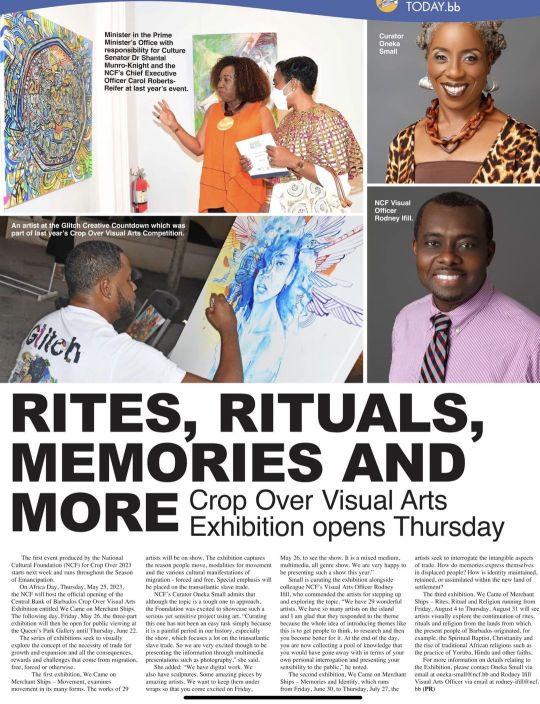
Sexypink - RITES, RITUALS, MEMORIES AND MORE CROP OVER VISUAL ARTS EXHIBITION OPENS THURSDAY. Barbados Today News. “The first event produced by the National Cultural Foundation (NCF) for Crop Over 2023 starts next week and runs throughout the Season of Emancipation.On Africa Day, Thursday, May 25, 2023, the NCF will host the official opening of the Central Bank of Barbados Crop Over Visual Arts Exhibition entitled We Came on Merchant Ships.The following day, Friday, May 26, the three-part exhibition will then be open for public viewing at the Queen’s Park Gallery until Thursday, June 22.The series of exhibitions seek to visually explore the concept of the necessity of trade for growth and expansion and all the consequences, rewards and challenges that come from migration, free, forced or otherwise.The first exhibition, We Came on Merchant Ships – Movement, examines movement in its many forms. The works of 29 artists will be on show.

The exhibition captures the reason people move, modalities for movement and the various cultural manifestations of migration - forced and free. Special emphasis will be placed on the transatlantic slave trade.NCF’s Curator Oneka Small admits that although the topic is a tough one to approach, the Foundation was excited to showcase such a serious yet sensitive project using art. “Curating this one has not been an easy task simply because it is a painful period in our history, especially the show, which focuses a lot on the transatlantic slave trade. So we are very excited though to be presenting the information through multimedia presentations such as photography,” she said.She added: “We have digital work. We also have sculptures.

Some amazing pieces by amazing artists. We want to keep them under wraps so that you come excited on Friday, May 26, to see the show. It is a mixed medium, multimedia, all genre show. We are very happy to be presenting such a show this year.”Small is curating the exhibition alongside colleague NCF’s Visual Arts Officer Rodney Ifill, who commended the artists for stepping up and exploring the topic. “We have 29 wonderful artists. We have so many artists on the island and I am glad that they responded to the theme because the whole idea of introducing themes like this is to get people to think, to research and then you become better for it. At the end of the day, you are now collecting a pool of knowledge that you would have gone away with in terms of your own personal interrogation and presenting your sensibility to the public,” he noted.The second exhibition, We Came on Merchant Ships – Memories and Identity, which runs from Friday, June 30, to Thursday, July 27, the artists seek to interrogate the intangible aspects of trade.

How do memories express themselves in displaced people? How is identity maintained, retained, or assimilated within the new land of settlement? The third exhibition, We Came of Merchant Ships – Rites, Ritual and Religion running from Friday, August 4 to Thursday, August 31 will see artists visually explore the continuation of rites, rituals and religion from the lands from which the present people of Barbados originated, for example, the Spiritual Baptist, Christianity and the rise of traditional African religions such as the practice of Yoruba, Hindu and other faiths.For more information on details relating to the Exhibition, please contact Oneka Small via email at [email protected] and Rodney Ifill Visual Arts Officer via email at rodney-ifill@ncf. bb (PR)”
#sexypink/Rites & Rituals.Memories and More#sexypink/Crop Over Visual Arts Exhibition#sexypink/Barbados Fine Art Events 2023#sexypink/National Cultural Foundation NCF#tumblr/Barbadian Art#tumblr/Barbadian Artists#Rites#Rituals#Memories and More#Crop Over#Barbados#painting#Art
4 notes
·
View notes
Text










2000s trends rihanna being everything
1 note
·
View note
Text
Vintage Barbados Bajan Gold-Tone Mid-Century Caribbean Travel Souvenir Keepsake Charm Bracelet with 7 Charms
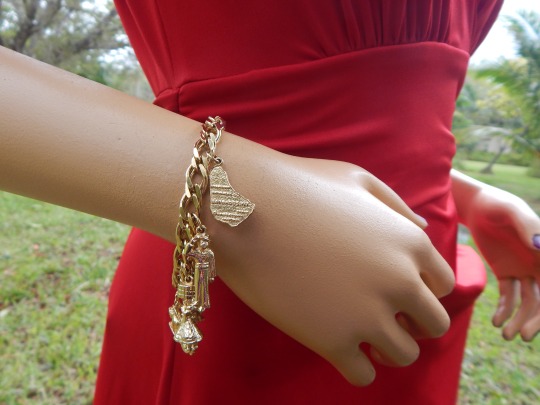
This absolutely gorgeous, very shiny gold tone 7-charm bracelet represents the traditional heritage and culture of Bajan life.

The fancy double-curb link chain bracelet holds 7 vintage charms: a man riding a donkey cart, limbo dancers, a steel drummer, a man driving an ox cart, a woman carrying a wash tub atop her head – Caribbean style – a policeman, and an island country map of the beautiful country of Barbados.

This wonderful charm bracelet makes a wonderful gift for anyone who appreciates – or misses – the beautiful country and rich heritage of Barbados!
#Barbados#Bajan#Barbadian#Bimshire#Bim#West Indian#Caribbean heritage#Caribbean culture#Bridgetown#charm bracelet#mid century#vintage jewelry#vintage charm bracelet#vintage fashion#Caribbean islands#keepsake#souvenir#travel#etsy
1 note
·
View note
Text
Shoutout to Caribbean LGBTQ+ folks.
Some identities below have folks who do not always consider themselves Caribbean, so if you are one of these identities and don’t identify as Caribbean, that is okay and you are just as loved :)
Shoutout to all Puerto Rican LGBTQ+ folks.
Shoutout to all Belizean LGBTQ+ folks.
Shoutout to all Aruban LGBTQ+ folks.
Shoutout to all Kalinago LGBTQ+ folks.
Shoutout to all Jamaican LGBTQ+ folks.
Shoutout to all Cuban LGBTQ+ folks.
Shoutout to all Antiguan and Barbudan LGBTQ+ folks.
Shoutout to all Bahamian LGBTQ+ folks.
Shoutout to all Martinican LGBTQ+ folks.
Shoutout to all Dominican LGBTQ+ folks.
Shoutout to all Guianese LGBTQ+ folks.
Shoutout to all Saint Martinois LGBTQ+ folks.
Shoutout to all Caymanian LGBTQ+ folks.
Shoutout to all US Virgin Islander LGBTQ+ folks.
Shoutout to all Statian LGBTQ+ folks.
Shoutout to all Haitian LGBTQ+ folks.
Shoutout to all Turks and Caicos Islander/Belonger LGBTQ+ folks.
Shoutout to all Surinamese LGBTQ+ folks.
Shoutout to all Montserratian LGBTQ+ folks.
Shoutout to all Anguillian LGBTQ+ folks.
Shoutout to all Curaçaoan LGBTQ+ folks.
Shoutout to all Barbadian/Bajan LGBTQ+ folks.
Shoutout to all Sabian LGBTQ+ folks.
Shoutout to all Creole LGBTQ+ folks.
Shoutout to all Vincentian LGBTQ+ folks.
Shoutout to all Grenadian LGBTQ+ folks.
Shoutout to all St. Barthélemyan LGBTQ+ folks.
Shoutout to all Bermudian LGBTQ+ folks.
Shoutout to all Lokono LGBTQ+ folks.
Shoutout to all Guadeloupean LGBTQ+ folks.
Shoutout to all British Virgin Islander LGBTQ+ folks.
Shoutout to all Trinidadian and Tobagonian LGBTQ+ folks.
Shoutout to all Taíno LGBTQ+ folks.
Shoutout to all Garifuna LGBTQ+ folks.
Shoutout to all Guyanese LGBTQ+ folks.
Shoutout to all Kittitian and Nevisian LGBTQ+ people.
Shoutout to all Saint Lucian LGBTQ+ folks.
Take pride in it all. Your culture, your identity, it’s all so beautiful. Celebrate where you are from and who you are. It makes you you, and that is something to be proud of.
Post for Native Americans, post for Africans, post for Middle Easterners, post for Asians, post for Pacific Islanders, post for Oceanic folks
#please make me aware if any are incorrect or missing#mental health#Caribbean#positivity#self care#mental illness#self help#recovery#lgbt#lgbtq#lgbtqia#lgbt positivity#lgbtq positivity#gay#pride#lesbian#wlw#sapphic#bi#bisexual#trans#transgender#queer#pansexual#intersex#asexual#aromantic#aroace#nonbinary#genderfluid
79 notes
·
View notes
Text




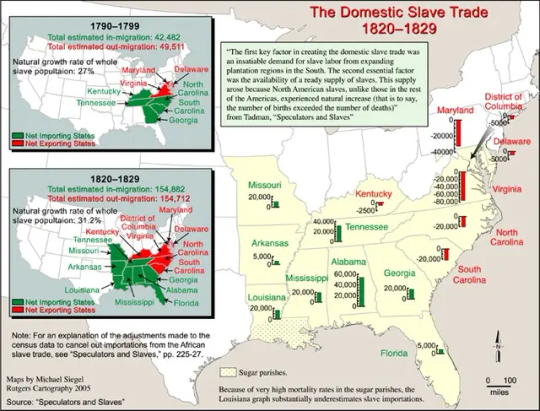
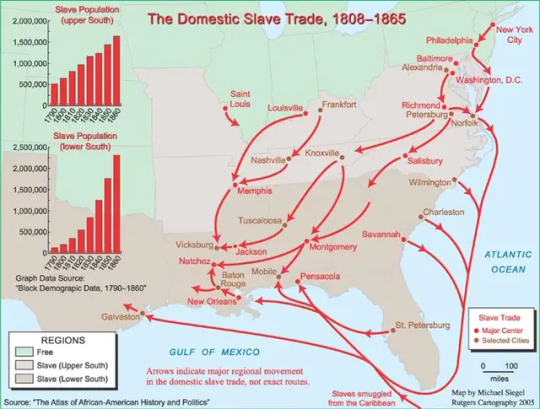

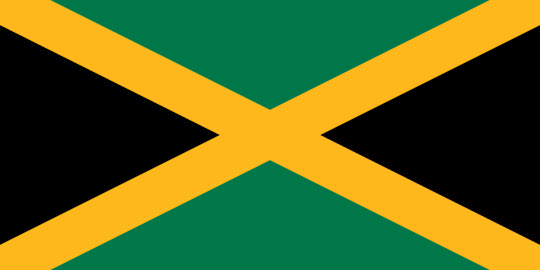
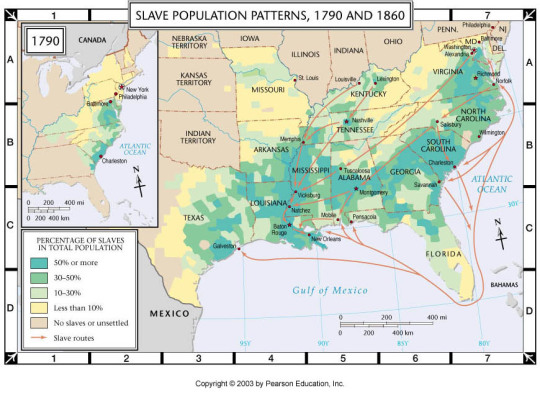


The Igbo in the Atlantic slave trade
Bussa, Barbadian slave revolt leader of Igbo descent
Edward Blyden, Americo-Liberian educator, writer and politician of Igbo descent
Paul Robeson, American actor and writer whose father was of Igbo descent
Aimé Césaire, Martiniquais poet and politician who claimed Igbo descent) argues that many of the slaves taken from the Bight of Biafra across the Middle Passage would have been Igbo. These slaves were usually sold to Europeans by the Aro Confederacy, who kidnapped or bought slaves from Igbo villages in the hinterland. Igbo slaves may have not been victims of slave-raiding wars or expeditions but perhaps debtors or Igbo people who committed within their communities alleged crimes. With the goal for freedom, enslaved Igbo people were known to European planters as being rebellious and having a high rate of suicide to escape slavery. There is evidence that traders sought Igbo women. Igbo women were paired with Coromantee (Akan) men to subdue the men because of the belief that the women were bound to their first-born sons’ birthplace.
It is alleged that European slave traders were fairly well informed about various African ethnicities, leading to slavers targeting certain ethnic groups which plantation owners preferred. Particular desired ethnic groups consequently became fairly concentrated in certain parts of the Americas. The Igbo were dispersed to colonies such as Jamaica, Cuba, Saint-Domingue, Barbados, Colonial America, Belize and Trinidad and Tobago, among others.

Rihanna is also Igbo
Colonial Nigeria
The establishment of British colonial rule in present-day Nigeria and increased encounters between the Igbo and other ethnicities near the Niger River led to a deepening sense of a distinct Igbo ethnic identity. The Igbo proved decisive and enthusiastic in their embrace of Christianity and Western-style education. Because of the incompatibility of the Igbo decentralized style of government and the centralized system including the appointment of warrant chiefs required for British system of indirect rule, the period colonial rule was marked with numerous conflicts and tension. During the colonial era, the diversity within each of Nigeria's major ethnic groups slowly decreased, and distinctions between the Igbo and other large ethnic groups, such as the Hausa and the Yoruba, became sharper.
The establishment of British colonial rule transformed Igbo society, as portrayed in Chinua Achebe's novel Things Fall Apart. Colonial rule brought about changes in culture, such as the introduction of warrant chiefs as Eze (indigenous rulers) where there were no such monarchies. Christian missionaries introduced aspects of European ideology into Igbo society and culture, sometimes shunning parts of the culture. The rumours that the Igbo women were being assessed for taxation sparked off the 1929 Igbo Women's War in Aba (also known as the 1929 Aba Riots), a massive revolt of women never encountered before in Igbo history.
Aspects of Igbo culture such as construction of houses, education and religion changed following colonialism. The tradition of building houses out of mud walls and thatched roofs ended as the people shifted to materials such as concrete blocks for houses and metal roofs. Roads for vehicles were built. Buildings such as hospitals and schools were erected in many parts of Igboland. Along with these changes, electricity and running water were installed in the early 20th century. With electricity, new technology such as radios and televisions were adopted, and have become commonplace in most Igbo households.
A series of black and white, silent films about the Igbo people made by George Basden in the 1920s and 1930s are held in the British Empire and Commonwealth Collection at Bristol Archives

#african#afrakan#kemetic dreams#africans#brownskin#brown skin#afrakans#african culture#afrakan spirituality#igbo#nigerian#british empire#jamaica#jamaican#barbados#igbo culture#igbo history#rihanna
45 notes
·
View notes
Text
🥃 Join No Chaser Magazine in exploring the indelible link between Barbadian culture and our most famous spirit Mount Gay Rum!
2 notes
·
View notes
Photo
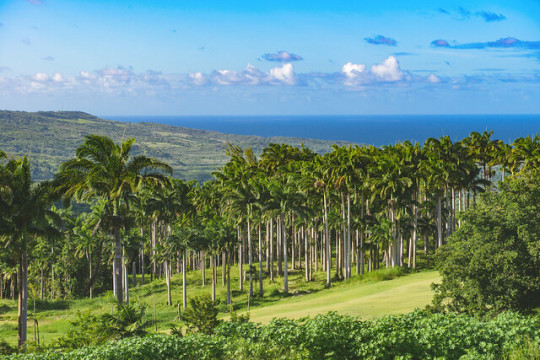
Golf Inc. Magazine Judges Bestow “Development of the Year” Honor on Apes Hill Barbados
Distinction Complements Rave Reviews for Newly Opened Course at Luxury Resort Residential Community
A panel of judges for Golf Inc., the international trade publication that provides owners and operators with industry trends, insights, and best practices, has voted Apes Hill Barbados runner-up in its annual Development of the Year competition.
The best-in-kind award “recognizes the finest private clubs and daily fee/resort courses with the best new traditional and non-traditional golf courses (including short courses) that opened during the past year around the globe.”
Winners were judged according to how well the vision of the project was executed, the course aesthetics, economic and environmental sustainability, course routing and land usage. The judges were Darryl Bartlett, senior project manager at NMP Golf Construction Corp.; Casey Paulson, project president at Driftwood Golf and Ranch Club; Kevin Norby of Norby Golf Course Design; Mike Nuzzo of Nuzzo Course Design; and Tripp Davis, president of Tripp Davis and Associates.
Stated the three Development of the Year judges about Apes Hill Barbados in their appraisal:
“A wonderfully conceived and executed vision with a strong emphasis on environmental sustainability. Shaping of fairways, bunkers and green complexes are dramatic and unique.” – Kevin Norby
“Spectacular! Beautiful modern buildings, great golf, all in a luxury setting, this place has it going on!” – Darryl Bartlett
“Beautiful views in a tropical environment; impressive commitment to environmental sustainability.” – Casey Paulson
That the judges cited Apes Hill Barbados’ inspired vision and successful execution, commitment to environmental and sustainability best practices, and the scintillating golf course designed by Ron Kirby in this breath-taking setting is precisely what Apes Hill Barbados set out to accomplish.
Apes Hill Barbados is owned by Apes Hill (Barbados) Inc., a Barbadian company whose primary shareholder is Glenn J. Chamandy, a Canadian investor, founder, and CEO of leading clothing brand Gildan Activewear. Chamandy purchased the property in 2019 and embarked on an ambitious project to redefine golfing and estate living on the Caribbean Island.
“The Development of the Year honor is deeply appreciated because the judges touched on the essence of what is Apes Hill Barbados in their comments,” said Sunil Chatrani, Executive Chairman, Apes Hill Barbados. “We’ve taken great care to build a course and comprehensive golf experience that complements our first-class community. This is a place where people embrace the important things in life: family, friendships, health, and connection to nature.”
In addition to the Ron Kirby designed, 18-hole championship golf course, Apes Hill Barbados offers exceptional, complementary golf amenities including the short course, 19th hole, sleek clubhouse, and state-of-the-art Golf Performance Centre.
Apes Hill Barbados is a 475-acre property of incredible elegance located in the Parish of Saint James on the west coast of the culturally vibrant and historically rich Barbados. The island is famed for its history, beauty, designer shops and world class restaurants. It also boasts some of the best golf courses in the Caribbean, with Apes Hill rating No. 5 in the Caribbean, Mexico, Costa Rica, and the Atlantic Islands (Source: Golfweek’s “Best You Can Play”).
Sustainability is at the forefront of the resort’s long-term DNA – designed to make it the most environmentally responsible golf course and development in the Caribbean. Underscoring this mandate is Apes Hill Barbados’ work with Audubon International, the non-profit organization that helps places employ environmental best practices and protect the areas where people live, work, and play.
Golf fairways and tees have been re-laid using the more drought tolerant Zoysia Zorro grass and the greens with TifEagle. The resistance of these grasses to insects also further reduces the reliance on fertilization and use of pesticides, with a view to Apes Hill Barbados eventually becoming chemical-free.
Apes Hill Barbados has a uniquely tranquil atmosphere that provides the perfect setting for inspired living at a pace of ease. Home to a developing range of accommodation options, the elegant venue is home to a portfolio of stunning real estate on site alongside golf vacation properties set to allow guests to stay and play late this year or early next. There are several exquisitely designed residential options that offer something for everyone’s taste – from charming villas to brilliantly designed detached homes.
Amenities at Apes Hill Barbados will include a wellness centre, several kilometers of enchanting nature trails, flood-lit Padel courts, TigerTurf tennis courts, spa, dining, and bespoke outdoor and well-being activities as well as a dedicated concierge service, among other top-class amenities. Apes Hill Barbados’ golfing credentials are just as impressive – the 18-hole championship golf course that opened for play in November 2022, and the cutting-edge Golf Performance Centre debuted in January 2023.
5 notes
·
View notes
Text
Unit 10
Hi Everyone,
Welcome to my last blog post!
It has been a great semester getting to know all of you! I don’t know about you all, but I can say this class took me out of my comfort zone many times. I can truly say I did enjoy it and learned a lot about nature and myself throughout this semester.
Now,
Personal ethics is a very interesting and important topic to discuss. As mentioned in my past blog post I have strong personal beliefs in ensuring individuals' health and well-being. I also strongly believe in ensuring equity in all aspects of life. It is important to understand and acknowledge the hardships that some may face and privileges that some may have.
The most important ethic that I believe in is accessibility. Beck et al., discuss the importance of accessibility in nature interpretation. The textbook also explains how we can break down these barriers to make nature interpretation more accessible (Beck et al., 2018). I look at accessibility as an equity issue. Equity is the understanding that we do not come from the same place and must acknowledge challenges and barriers in other individuals' lives (Wieland et al., 2022). This means, not everyone has access to the internet, books, or learning tools. Some people lack comprehensive skills or there is a language barrier (Beck et al., 2018). There are other individuals that have mobility issues that prevent them from receiving access to educational resources or experiences (Beck et al., 2018). Therefore, just providing educational tools and resources to all individuals does not solve the issue of accessibility. Everyone, no matter age, race, gender, socioeconomic status, etc, should be allowed access to effective education (Wieland et al., 2022). Everyone has the right to learn and to know. Knowledge is power and we should be empowering all individuals and not just the people that are most convenient.
The next personal ethic that I believe in is respect. Now, this can sound very broad and that is because it is. It is important to not only respect ourselves but the environment and culture that surrounds us. At the beginning of the course, I talked about humanizing the environment. We should be respecting nature like it is a fellow human being. Science has proven that the environment is slowly dying because of anthropogenic effects (Ferreira et al., 2016). It is important that we respect the environment and what it offers us. This includes taking care of the environment when it is fragile. The environment also comes with a culture and history that needs to be respected. Some individuals are spiritually connected with the environment around them, and it is important that outsiders do not disrespect the culture. During one of my travel adventures to Barbados, I had the pleasure to experience Eco-Adventure Park at Harrison’s Cave. Not only is there a massive cave system but there is a gully where a lot of plant life grows. The adventure guides informed us that locals from the other side of the gully will walk through the plant life to travel into town. For most outsiders just learning about the area this sounds not so conservation-like. However, the guides explained that this was something that locals were doing before the gully and cave was established and protected by the Barbadian Government. The government allowed the locals to continue to use the pathway as it was in the culture for the locals to travel this way. Therefore, it is important to listen and learn about the culture of the environment to learn how to respect it and the people that live in it.
There are a lot of responsibilities that I have as a student, human, and future healthcare professional. As a university student, I really value my education and would advocate for others to receive an education. I acknowledge that receiving a university of education is a privilege. However, basic education, reading, writing, and arithmetic, provide equitable education (McIntosh., 1989). As a human, it is my responsibility to take care of the environment. This can look different for everyone. I like to educate myself on environmental issues around me and how to mediate the effects. As a future healthcare professional, I aspire to advocate for the health and well-being of individuals. As I have learned in previous courses and mentioned in a previous blog post, nature has an effect on individuals’ mental health. It is proven that nature improves mental health and well-being. I believe that this is my responsibility to advocate for access to nature to improve mental health and well-being.
The approach that would be most suitable for me would be continuing to use my voice to advocate for others. I want to empower others that lack the same opportunities and experiences that I do. I have the skills and knowledge to advocate effectively and respectfully. Advocating is not just speaking for others but knowing when not to speak.
I look forward to reading your posts to learn more about your personal beliefs and ethics. Do we share any similar ethics?
Thank you all for a great semester.
Makayla
Beck, L, Cable, Ted T., Knudson, D. M. (2018). Interpreting Natural & Cultural Heritage. Sagamore-Venture Publishing. 2018
Wieland, J., Jordan, B. L., & Jatoi, A. (2022). Equity. Cancer, 128(12), 2240–2242. https://doi.org/10.1002/cncr.34179
Ferreira, V., Koricheva, J., Duarte, S., Niyogi, D. K., & Guérold, F. (2016). Effects of anthropogenic heavy metal contamination on litter decomposition in streams – A meta-analysis. Environmental Pollution (1987), 210, 261–270. https://doi.org/10.1016/j.envpol.2015.12.060
McIntosh, P. (1989, July/August). White privilege: Unpacking the invisible knapsack. Peace and Freedom, 10-12
3 notes
·
View notes
Text
Love, the elegant antithesis to the irrefutably, villainous perturbations of Hate!
By Stanley Collymore
By virtue of its discernibly quite innate characteristics Love is perceptibly very instinctive and naturally simply reassuring. Hate, however, in obviously and undeniably so an unarguable contrast, is fittingly rather markedly, unquestionably and unrelentingly, distinctly prescriptive! For unlike Love whose general remit and actually voluntary commitment, simply is to evidently literally and as well equally thoroughly inspire, fully generate and sustain wherever and whenever possible an eager feeling of genuine self-assurance; crucially a literal consummate affability and appropriate responsibility for one's own actions and quite distinctively too the instinctive bonding of such personal qualities for, and likewise to the selfless advantage of others.
Hate, for its part, is self-evidently, simply purposefully malignant; egregious in its actions, at every affordable opportunity; and while efficaciously ploughing its wanton way along the literally ingrained furrows of jealousy, invidious envy, and the vilely wilful progeneration of any and every possible calamity, actually cheerfully, keenly, undoubtedly, and mercilessly congratulatorily, irrefutably presents itself whenever crass barbarity and basically its accompanying carnage unquestionably specifically become the efficacious, or relevant currency.
(C) Stanley V. Collymore 5 July 2024.
Author's Remarks: The evidently, innately sterling qualities of my clearly distinctly proud Barbadian Culture has discernibly firmly imbued in me a rather strong, personal ethos; that I should never hate anyone despise, by all means, relevant individuals who truly deserve great loathing; but to go on and obviously hate them or crucially anyone else for that matter, never! And actually so, because to rather vindictively utilize one's time, precious or nor, in idiotically, asininely and often essentially counterproductively hating anyone, only ultimately reduces one's own self inevitably to quite simply being really the actual despicable figure that one ironically is employing to really in effect castigatorily lambast and also equally evidently vitriolically demean or denounce one's chosen target for quite simply being themselves.
The rationale behind all this being that if you are being hateful yourself, how then can you honestly condemn others for behaving in precisely the same way that you're deeply engrossed in actually behaving yourself? It makes no sense whatsoever to me, and your subjectivity is quite skewed to say the very least. A classic case of do as I say or suggest but evidently not as I do!
Despising someone however is simply a literally wholly different and objective ball game because it's not based solely on subjective and very often thoroughly bigoted emotions or persuasions really as hate unequivocally and similarly also is; but instead quite logical, intelligently and rather solidly and simply irrefutably garnered facts, on which one can quite sensibly, and should always do so, base their own thoroughly objective analysis and obviously, intelligently constructive determination.
So exactly when are you distinctively as such effectively going to obviously climb down off the several, rather calculatedly orchestrated populist, very inane and utterly fatuous and basically ill conceived bandwagons of hate that you so idiotically love climbing aboard onto, even when you don't know, evidently haven't met or are ever in your life time or theirs ever likely to meet - ring any bells with you? - because of a lack of your own actually poor self-esteem? Just try it! It might very well even make you a half decent person!
0 notes
Text
Step-by-Step Guide for Barbados Citizens Applying for Dubai Visa

Dubai, with its towering skyscrapers, luxury shopping, and vibrant cultural scene, has become a coveted destination for travelers worldwide. For Dubai Visa for Barbados Citizens, planning a visit to this dynamic city requires understanding the Dubai visa requirements and the application process. Whether you're traveling for leisure, business, or simply to explore the wonders of this modern metropolis, securing the right visa is essential.
Understanding Dubai Visa Requirements
Before embarking on your journey from Barbados to Dubai, it's crucial to comprehend the Dubai visa requirements. The visa policies for Dubai are clear-cut yet vary depending on the purpose of your visit. For Barbadian passport holders, obtaining a visa is generally straightforward, provided you adhere to the guidelines set by the UAE government.
Types of Dubai Visas Available
For Barbados citizens, the most common types of visas to Dubai include:
Tourist Visa: Ideal for individuals traveling to Dubai for leisure or to visit family and friends.
Business Visa: Necessary for those engaging in business activities such as meetings, conferences, or exploring potential opportunities in Dubai.
Transit Visa: Designed for passengers transiting through Dubai en route to their final destination.
Each visa type has specific Dubai visa requirements that Barbados citizens must fulfill, including passport validity, documentation, and sometimes financial proof.
Applying for a Dubai Visa
1. Dubai Visa Online Process:
Applying for a Dubai visa from Barbados is now easier than ever with the advent of online visa services. The process typically involves:
Online Application: Fill out the application form accurately, providing details such as personal information, travel itinerary, and purpose of visit.
Document Submission: Upload required documents, including a scanned copy of your passport, passport-sized photograph, and any supporting documents based on the type of visa you're applying for.
Payment: Pay the visa fee online using a credit card or other accepted methods.
Processing Time: Await processing, which usually ranges from a few days to a couple of weeks, depending on the type of visa.
2. Dubai Visa from UK or Other Locations:
If you're traveling from Barbados but reside in the UK, the process remains largely the same. Ensure you apply for your Dubai visa from the UK well in advance of your planned departure.
Tips for Smooth Visa Processing
To enhance your chances of a successful visa application, consider these tips:
Apply Early: Start the visa application process well in advance to avoid any last-minute delays.
Complete Documentation: Double-check all required documents are in order and meet the Dubai visa requirements.
Follow Guidelines: Adhere strictly to the guidelines provided on the official UAE visa application portal.
Conclusion
Securing a Dubai visa for Barbados citizens opens doors to a world of opportunities and experiences in one of the Middle East's most dynamic cities. Whether you're drawn by the architectural marvels, desert safaris, or shopping extravaganzas, Dubai promises a memorable journey. By understanding and fulfilling the Dubai visa requirements specific to Barbados citizens, you pave the way for a smooth and hassle-free travel experience. Start your journey today by applying for your Dubai visa online and prepare for an adventure like no other in this dazzling city of dreams.
0 notes
Text



#kadooment#barbados#campari#kadooment day for campari#krishotit#bajan photographers#barbadian photographers#carnival culture#cropover#crop over#mmb
1 note
·
View note
Text

Sexypink - Crop Over Visual Arts Exhibition - Barbados.
#sexypink/call for Art in Barbados for Barbadians#sexypink/ National Cultural Foundation Barbados#sexypink/visual artists in Barbados#crop over#Barbadian Art#Barbadian Artists
0 notes
Text
10 Interesting Facts About Barbados
Learn 10 interesting facts about Barbados, from its stunning beaches and rich rum history to its vibrant festivals and colonial architecture. Explore Barbados' unique culture and heritage.
Basic Information About Barbados Country Full Name: Barbados Continent: North America (Caribbean) Official Language: English Currency: Barbadian Dollar (BBD) Main Dish: Flying Fish and Cou-Cou Famous For: Stunning beaches, rum production, vibrant festivals, colonial architecture, Rihanna Size: 430 square kilometers Population: Approximately 287,000 Name Meaning: The name “Barbados” is…

View On WordPress
0 notes
Text
Rihanna's Scottish and Irish roots and why she wants to learn more
Rihanna reclaimed her surname in 2017, when she launched her cosmetics company.
People believe the surname Fenty originated from the Irish surname, Fenton, which is native to county Cork. It's common today for many biracial Barbadians to have Irish surnames.
Rihanna's father, Ronald Fenty, is a Bajan of African, Irish, English and Scottish descent. The likelihood of Rihanna's father's Irish ancestry can be traced back to the Cromwellian Conquest, when Oliver Cromwell invaded Ireland in the 1640's, rounding up people living on the land, and stealing their land.
Irish men, women and children were forcibly transported to work on sugar and tobacco plantations in the newly colonized Barbados, Jamaica and the smaller Caribbean islands including St. Kitts, Nevis, Antigua and Montserrat. Many locations on the Caribbean islands share Irish place names, like Cork Hill, Kinsale and Roche's Mountain.
The Irish indentured servants transported to Barbados to work on sugar plantations in the 17th century were part of the Caribbean's poor white community known as Redlegs.
The Irish who arrived to the Islands lived in the same quarters and conditions as African slaves who were also sent to the Caribbean around that time. The culture, accents, and names bled between the two ethnicities, eventually resulting in a long line of people with a mixed ancestry from opposite sides of the globe.
Some experts believe that the Caribbean accent is actually the result of a fusion of multiple languages and accents, including Irish. Similarities in the Cork and Caribbean accent is most common.
A decade after Rihanna sang on Calvin Harris's track We Found Love, she told how the song changed her life and why she's now determined to find out more about her Scottish roots. The song was written and produced by Harris, a Scottish producer.
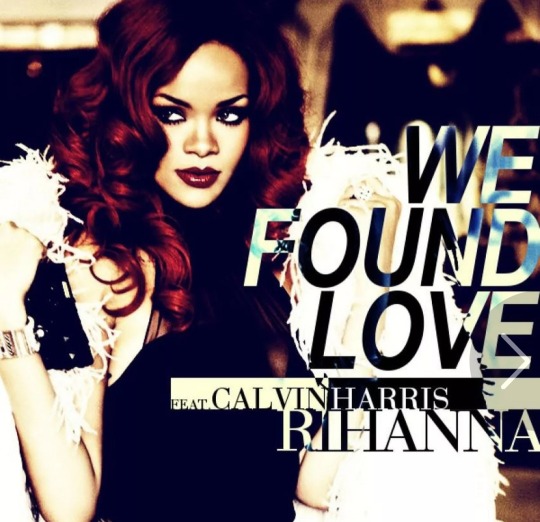
Rihanna, who revealed she was bullied when she was younger for being lighter than the other girls said, "I have Scottish and Irish roots, and I think it's really interesting to explore your roots and I would love to know more."
While she hasn't released an album since Anti, Rihanna said her new album, R9, will be worth the wait. "The album will be on a different level," she said.
#rihanna#article#biracial#ancestry#history#barbados#caribbean#ronald fenty#irish#ireland#scotland#scottish#celtic#ethnicity#rih article
1 note
·
View note